
All Saints: The Heartbeat of Antigua's Countryside
Nestled in the lush, rolling hills of Antigua, All Saints is a charming village that offers a unique blend of natural beauty and rich cultural heritage. As you stroll through its serene streets, you'll be captivated by the vibrant local life and the genuine warmth of its residents. The village's lush landscapes and gentle breezes provide a refreshing escape from the hustle and bustle of the island's more tourist-heavy areas. A visit to All Saints isn't complete without exploring the historic St. John’s Cathedral, an architectural marvel that stands as a testament to the island’s colonial past. Nearby, you can also find the Betty's Hope Sugar Plantation, where you can delve into the history of Antigua's sugar industry and its impact on the local community. The picturesque scenery around these sites makes for an enriching and contemplative experience. For nature enthusiasts, the surrounding areas of All Saints offer numerous hiking trails that lead to breathtaking vistas and hidden gems. Whether you're trekking through the verdant hills or simply enjoying a leisurely walk, the flora and fauna of this region are sure to delight. All Saints is also a gateway to some of Antigua's best-kept secrets, including secluded beaches and pristine coves that promise tranquility and relaxation.
Local tips in All Saints
- Visit St. John's Cathedral early in the morning to avoid crowds and capture the best photos.
- Wear comfortable walking shoes as the village and its surroundings are best explored on foot.
- Don't miss the local markets where you can buy fresh produce and handmade crafts.
- Hire a local guide to learn about the history and significance of Betty's Hope Sugar Plantation.
- Bring plenty of water and sunscreen if you plan to hike the trails around All Saints.
All Saints: The Heartbeat of Antigua's Countryside
Nestled in the lush, rolling hills of Antigua, All Saints is a charming village that offers a unique blend of natural beauty and rich cultural heritage. As you stroll through its serene streets, you'll be captivated by the vibrant local life and the genuine warmth of its residents. The village's lush landscapes and gentle breezes provide a refreshing escape from the hustle and bustle of the island's more tourist-heavy areas. A visit to All Saints isn't complete without exploring the historic St. John’s Cathedral, an architectural marvel that stands as a testament to the island’s colonial past. Nearby, you can also find the Betty's Hope Sugar Plantation, where you can delve into the history of Antigua's sugar industry and its impact on the local community. The picturesque scenery around these sites makes for an enriching and contemplative experience. For nature enthusiasts, the surrounding areas of All Saints offer numerous hiking trails that lead to breathtaking vistas and hidden gems. Whether you're trekking through the verdant hills or simply enjoying a leisurely walk, the flora and fauna of this region are sure to delight. All Saints is also a gateway to some of Antigua's best-kept secrets, including secluded beaches and pristine coves that promise tranquility and relaxation.
When is the best time to go to All Saints?
Iconic landmarks you can’t miss
Heritage Quay Complex
Discover a vibrant blend of shopping, dining, and Caribbean culture at Heritage Quay Complex in St. John's, Antigua.
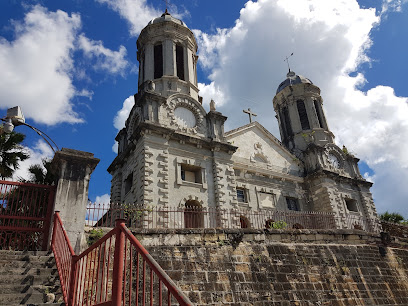
Nelson's Dockyard
Experience the rich maritime heritage and stunning landscapes at Nelson's Dockyard, a UNESCO World Heritage Site in Antigua, showcasing history and culture.
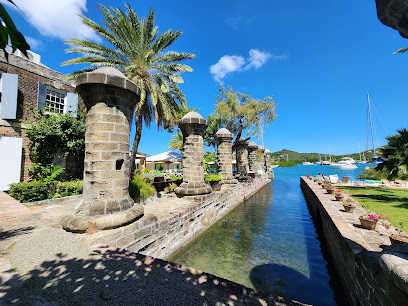
Stingray City Antigua
Dive into an unforgettable aquatic adventure at Stingray City Antigua, where vibrant marine life meets stunning Caribbean beauty.
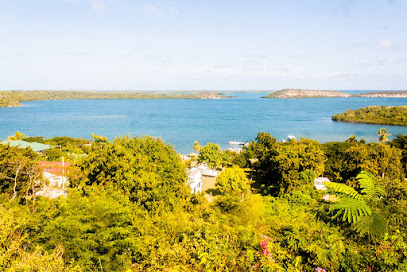
Redcliffe Quay
Explore Redcliffe Quay: a vibrant shopping mall in St. John's, Antigua, blending local culture, unique shops, and delicious cuisine in a charming setting.
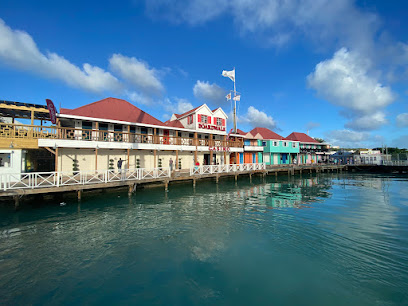
Shirley Heights Lookout
Experience Antigua's best views from this historic military lookout, offering stunning sunsets, lively parties, and delicious Caribbean flavors.
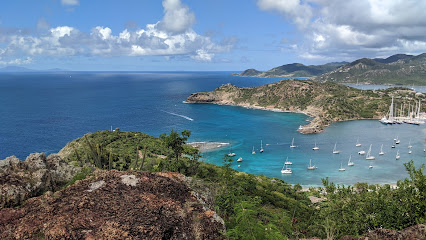
Devil's Bridge National Park
Explore Antigua's Devil's Bridge National Park: a stunning natural arch with coastal views, hiking, and a poignant history.
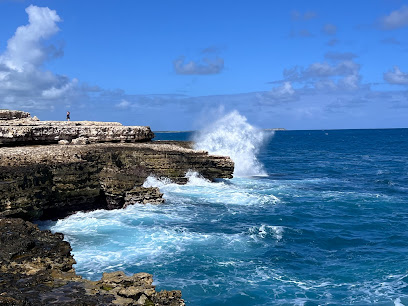
Galleon Beach
Discover the beauty of Galleon Beach in Antigua - a stunning public beach perfect for relaxation, water sports, and unforgettable sunsets.
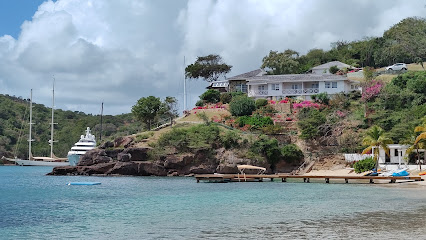
Pigeon Point Beach
Discover the beauty of Pigeon Point Beach in Antigua, where pristine sands meet vibrant culture and endless activities for all ages.
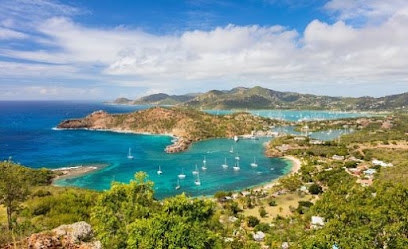
VC Bird Monument
Explore the VC Bird Monument in St. John's, a stunning tribute to Antigua and Barbuda's first Prime Minister amidst vibrant local culture.
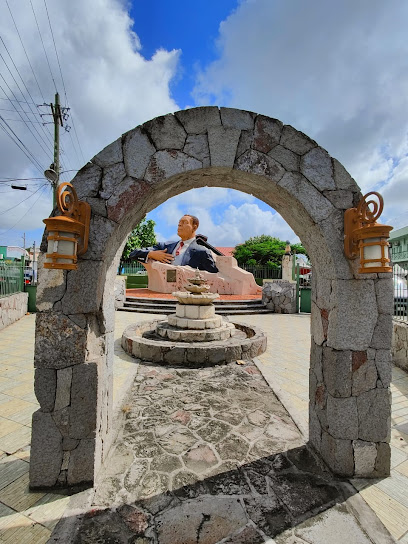
Dickenson Bay Beach
Experience the idyllic charm of Dickenson Bay Beach, a Caribbean paradise perfect for sunbathing, water sports, and unforgettable sunsets.
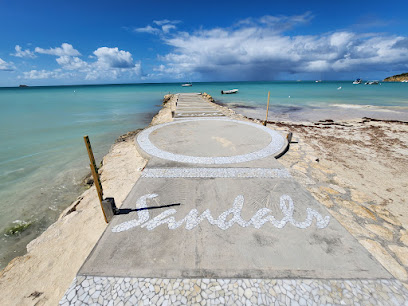
Museum of Antigua and Barbuda
Uncover the captivating history and culture of Antigua and Barbuda at the Museum of Antigua and Barbuda, a treasure trove of artifacts and stories.
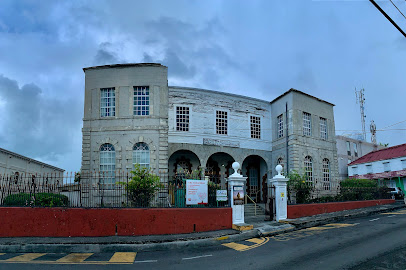
Dow's Hill Interpretation Centre
Explore the stunning views and rich history at Dow's Hill Interpretation Centre, a national park and tourist attraction in Antigua.
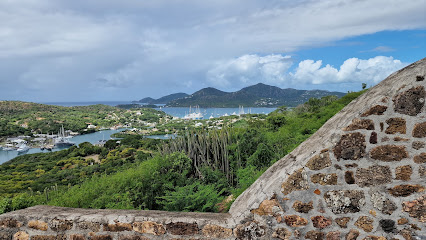
Fort James
Explore the historical depths and scenic views of Fort James, a must-visit landmark in St. John's, Antigua, rich with colonial history and coastal charm.
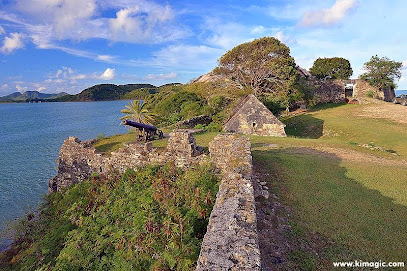
Betty's Hope Historic Sugar Plantation
Step back in time at Betty's Hope, Antigua's first sugar plantation, and discover the stories etched in its historic ruins and restored mill.
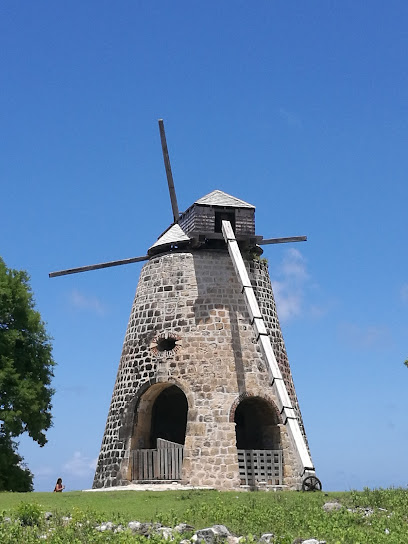
Saint John's Cathedral
Discover the architectural beauty and historical significance of Saint John's Cathedral, a must-visit landmark in Antigua's capital.
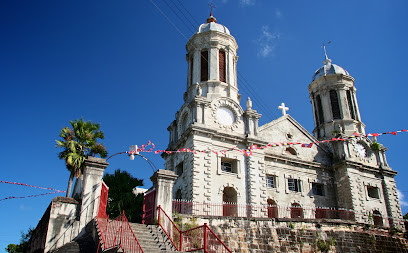
Unmissable attractions to see
Nelson's Dockyard
Step back in time at Nelson's Dockyard, the Caribbean's only continuously working Georgian-era naval dockyard and UNESCO World Heritage Site.
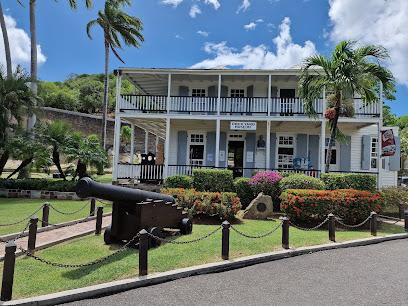
Stingray City Antigua
Interact with gentle stingrays in their natural habitat at this unique Antigua attraction; an unforgettable experience for all ages.
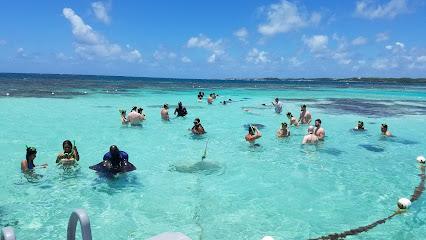
Devil's Bridge National Park
Discover Antigua's dramatic Devil's Bridge National Park: a natural limestone arch sculpted by the Atlantic, offering stunning views and rich history.
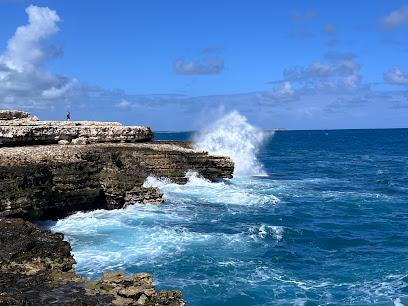
Sir Vivian Richards Stadium
Experience the thrill of cricket at Antigua's premier sporting venue, named after the legendary Sir Vivian Richards.
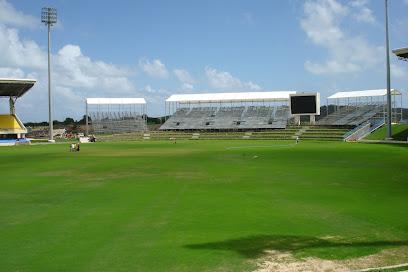
Galleon Beach
Discover tranquil Galleon Beach in Antigua: pristine sands, calm waters, snorkeling, hiking, and stunning views await in this Caribbean paradise.
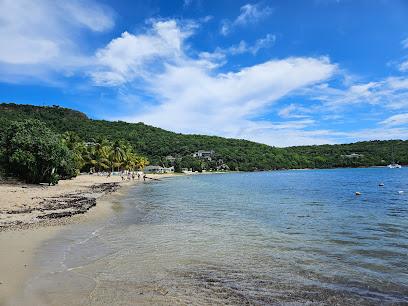
Pigeon Point Beach
Discover Antigua's Pigeon Point Beach: Calm waters, golden sands, and stunning sunsets await in this Caribbean paradise.
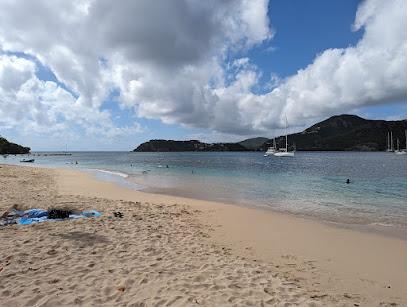
The Blockhouse
Explore Antigua's colonial past at The Blockhouse: a historic fortress with panoramic views and captivating ruins.
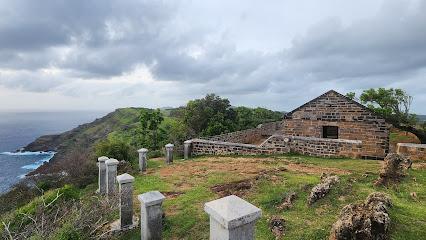
Dickenson Bay Beach
Discover Antigua's gem: Dickenson Bay offers white sands, turquoise waters, water sports, beachfront dining, and stunning sunsets on the Caribbean coast.
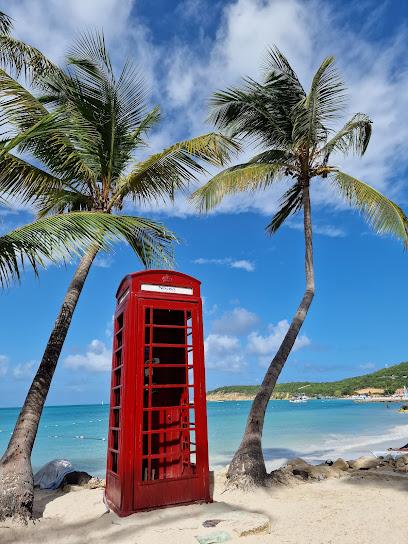
Long Bay Beach
Discover Long Bay Beach in Antigua: Pristine sands, crystal waters, and vibrant marine life await in this Caribbean paradise. Perfect for relaxation and adventure.
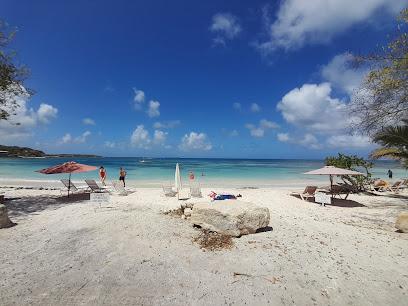
Museum Of Antigua & Barbuda
Discover Antigua and Barbuda's captivating history and vibrant culture at the heart of St. John's in a beautifully preserved historic landmark.
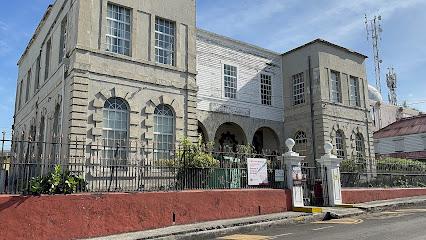
Betty's Hope Historic Sugar Plantation
Discover Antigua's colonial past at Betty's Hope, the island's first sugar plantation and a testament to its complex history.
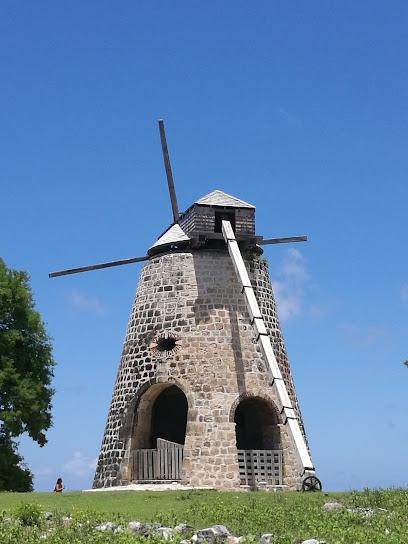
Saint John's Cathedral
Discover the resilient beauty of Saint John's Cathedral, a historic landmark showcasing Antigua's architectural heritage and enduring spirit.
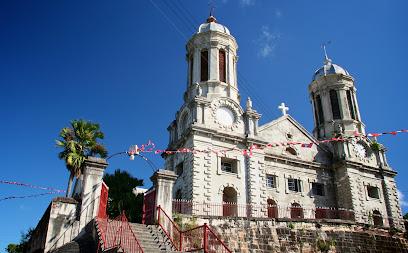
Dow's Hill Interpretation Centre
Explore Antigua's captivating history and breathtaking views at Dow's Hill Interpretation Centre, nestled in Nelson's Dockyard National Park.
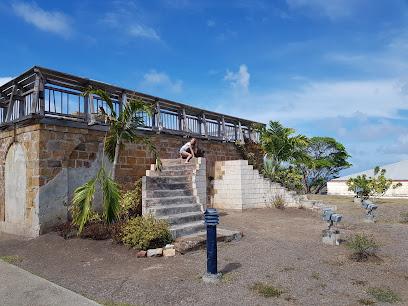
Darkwood Beach
Discover tranquility at Darkwood Beach, Antigua: pristine sands, clear waters, and stunning sunsets await on this Caribbean gem.
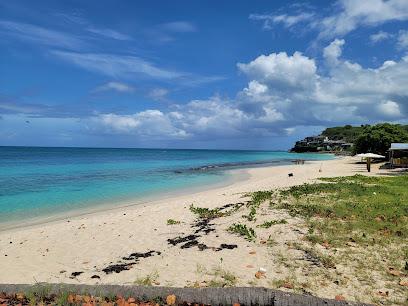
Nicole's Table - Caribbean Cooking Classes
Discover the flavors of Antigua! Hands-on Caribbean cooking classes in a beautiful eco-friendly home with stunning views. A true taste of island life.
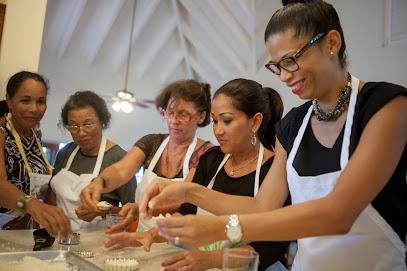
Essential places to dine
Ana's On The Beach
Discover culinary delights at Ana's On The Beach in Antigua—where stunning ocean views meet exquisite flavors in every dish.
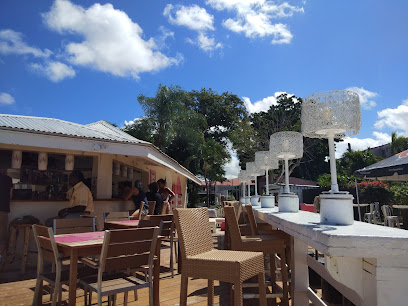
Cutie's
Discover Cutie's in St. John's for a delightful mix of local and international flavors in a vibrant setting.
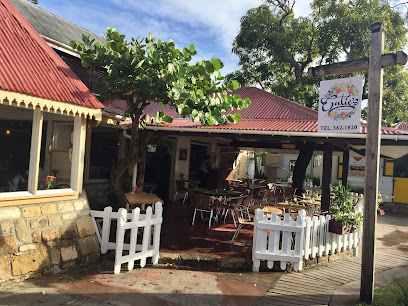
Road House Restaurant And Bar
Experience authentic Caribbean flavors at Road House Restaurant And Bar in Newfield, Antigua – a culinary delight for every traveler.
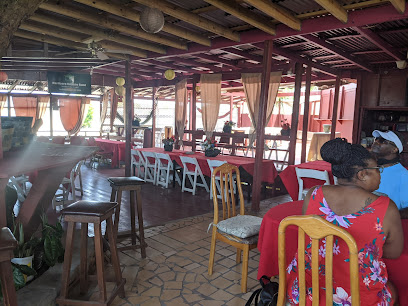
Turner's Beach
Discover Turner's Beach: A picturesque paradise offering delicious Caribbean cuisine amidst stunning ocean views.
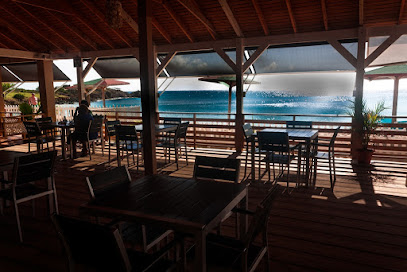
Bitar Pizza Fast Food
Savor delicious fast food at Bitar Pizza Fast Food in All Saints – where every meal is made with fresh ingredients and served with a smile.
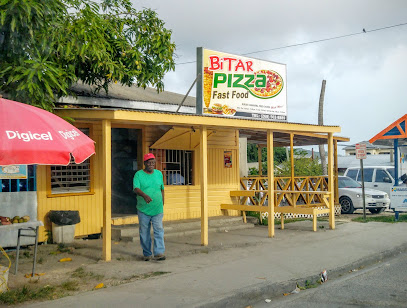
Alligators Bar and Restaurant
Experience authentic Caribbean cuisine at Alligators Bar and Restaurant in St. John's - where delicious food meets vibrant island culture.
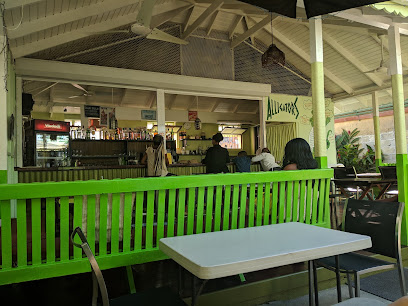
Boom Restaurant
Experience exquisite Caribbean cuisine with stunning views at Boom Restaurant in English Harbour - A culinary delight for every visitor.
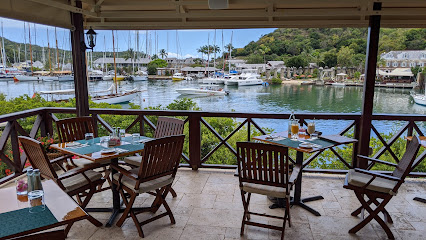
Incanto
Discover authentic Italian cuisine at Incanto in English Harbour, where delicious flavors meet stunning waterfront views.
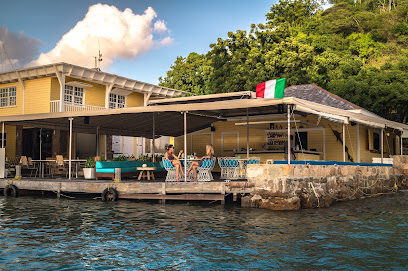
Cool Runnings Restaurant & Bar
Experience authentic Caribbean flavors at Cool Runnings Restaurant & Bar in St. John's - a culinary delight for every traveler.
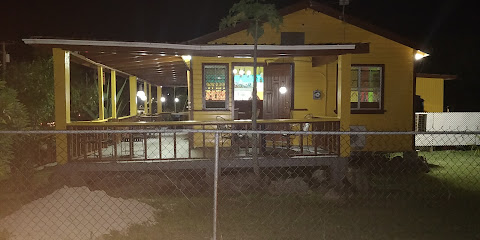
D'cravinz Restaurant & Bar
Experience authentic Caribbean dining at D'cravinz Restaurant & Bar in Antigua – where local flavors meet vibrant hospitality.
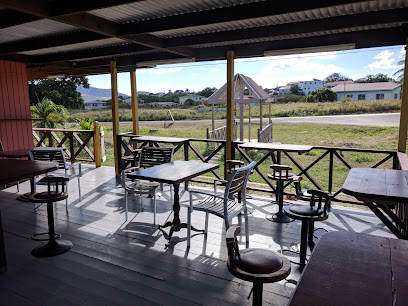
Colibri Bistro Bar Lounge
Experience culinary excellence at Colibri Bistro Bar Lounge in Antigua – where vibrant flavors meet a lively atmosphere.
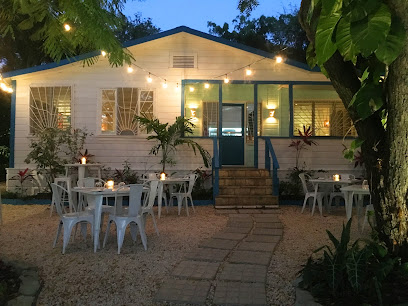
Dan's Bar, Grill & Ice Cream Palor
Experience delicious grilled dishes and tempting ice cream at Dan's Bar & Grill in Buckleys - a must-visit culinary gem!
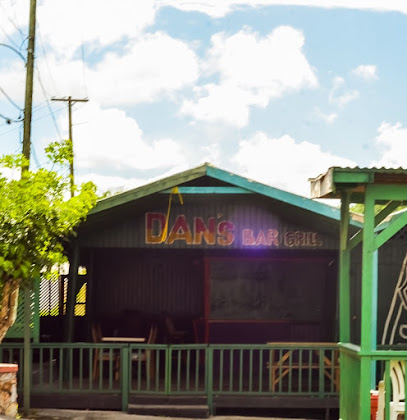
Sea Dream Restaurant and Bar
Experience exquisite cuisine with stunning ocean views at Sea Dream Restaurant and Bar in Antigua.
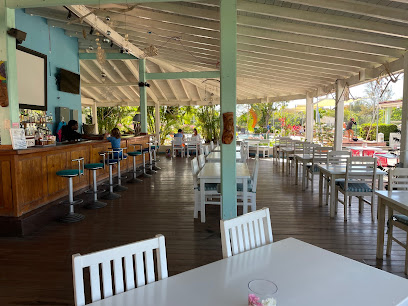
Five Senses Antigua
Experience the vibrant flavors of Asia at Five Senses Antigua - A premier Pan Asian dining destination on Dockyard Drive.
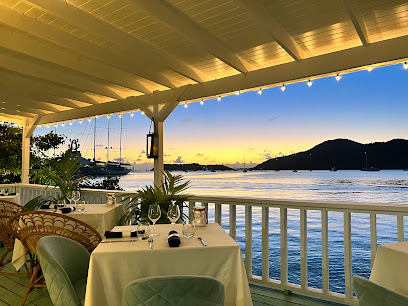
Bumpkins
Discover Bumpkins in Piccadilly – where local flavors meet exceptional service in a cozy dining atmosphere.
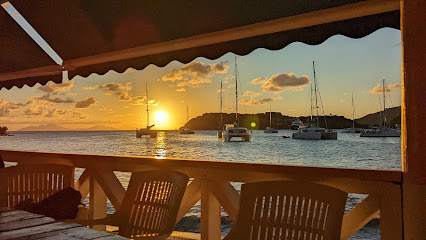
Markets, malls and hidden boutiques
The Cool and Smooth
Explore The Cool and Smooth in St. John's for an exceptional selection of clothing that captures the essence of Antiguan style and culture.
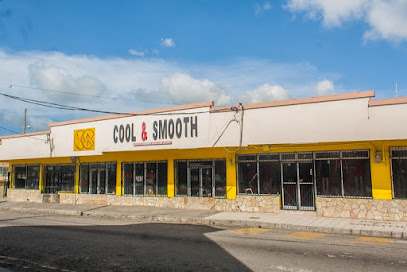
306 Antigua
Explore the vibrant charm of 306 Antigua, St. John's premier destination for unique home goods and local artisan treasures.
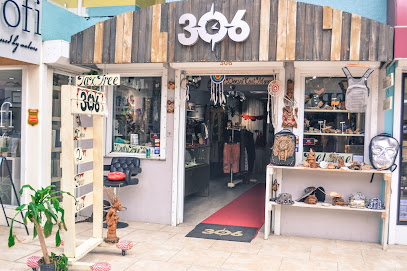
Exotic Antigua
Shop at Exotic Antigua for a unique selection of Caribbean-inspired clothing, celebrating local artistry and vibrant island fashion.
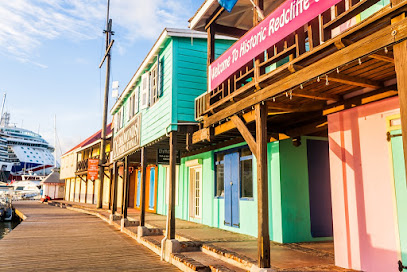
FL hardware store
Explore a local hardware store offering a diverse range of tools and supplies for every DIY project, showcasing regional craftsmanship and community spirit.
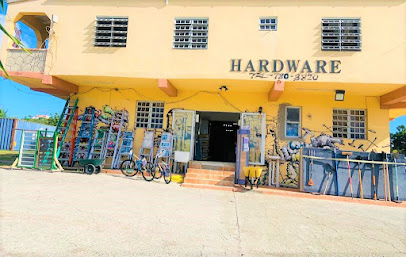
The Posh Pirate Antique Store
Explore the enchanting world of antiques at The Posh Pirate Antique Store in Liberta – a must-visit for collectors and history enthusiasts.
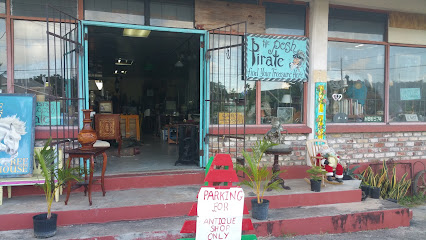
BOSSY MINI MART
Discover local flavors and essentials at BOSSY MINI MART, your go-to grocery stop in Antigua.

Cole's Grocery Plus
Discover local flavors and everyday essentials at Cole's Grocery Plus in All Saints, the heart of the Antiguan shopping experience.

Britt Shop Aeropuerto Antigua
Explore unique gifts, local chocolates, and authentic souvenirs at Britt Shop Aeropuerto Antigua, a delightful shopping destination for travelers.
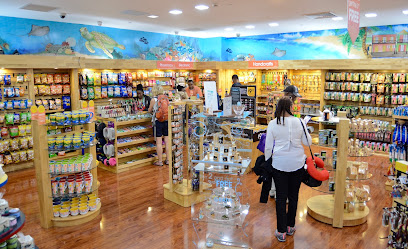
Bits N Pieces
Explore fashionable finds at Bits N Pieces in Cassada Gardens, where style meets exceptional customer service for a delightful shopping experience.
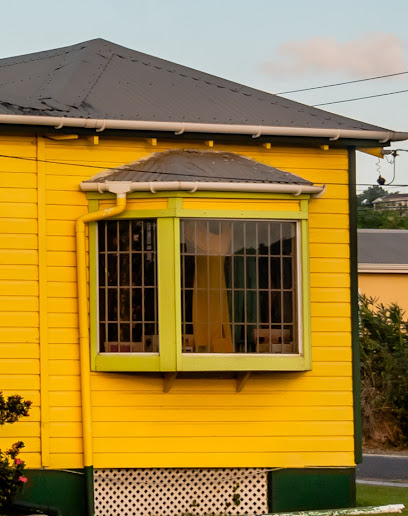
TWIN SUPERMARKET th
Discover the best of local and international products at Twin Supermarket in All Saints, your go-to shopping destination in Antigua.
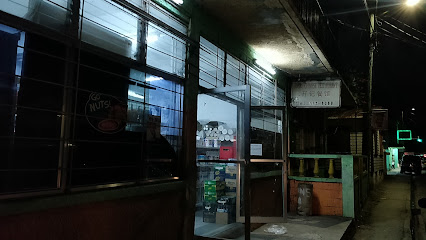
Photofantasy Antigua
Explore Photofantasy Antigua for unique souvenirs and local craftsmanship in the heart of stunning English Harbour.

CMM Neighbourhood SuperMart
Explore local flavors and stock up on essentials at CMM Neighbourhood SuperMart in All Saints, your friendly neighborhood grocery store.
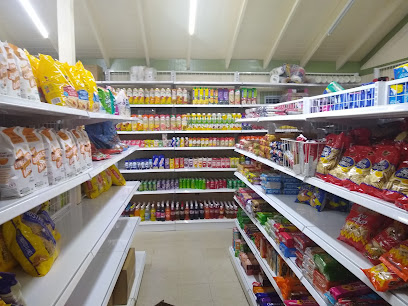
Rae-el Collection
Discover Rae-el Collection in St. Paul’s for unique stationery, art supplies, and memorable gifts that capture the essence of All Saints.

The Tailor's Daughter
Explore The Tailor's Daughter in St. John's for unique clothing and handcrafted gifts that embody the essence of Antigua.
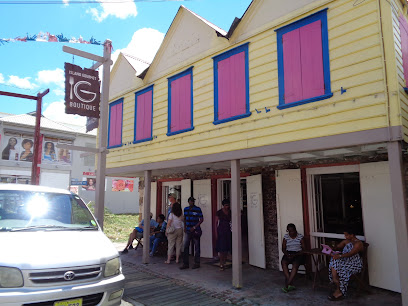
THE BEST GIFTSTOP
Discover unique handcrafted treasures at The Best Giftstop in St. John's, your go-to shop for authentic Caribbean souvenirs.
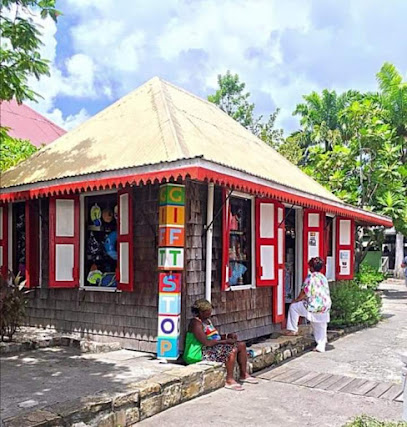
Essential bars & hidden hideouts
The Nest -Beach Bar, Antigua
Experience the vibrant atmosphere and stunning views at The Nest Beach Bar, Antigua's ultimate destination for relaxation and delicious grilled cuisine.
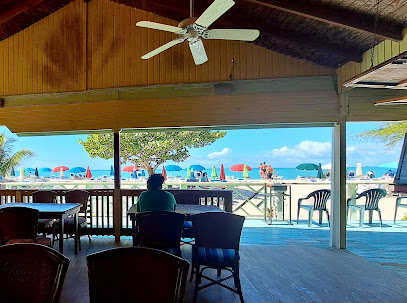
Cheers Antigua
Experience the vibrant flavors of Antigua at Cheers Antigua, a grill restaurant in Saint John's offering delicious cuisine and a welcoming atmosphere.
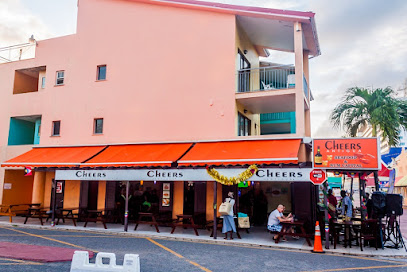
Dan's Bar, Grill & Ice Cream Palor
Savor the best grilled delights and irresistible ice cream at Dan's Bar, Grill & Ice Cream Parlor in Buckleys, a must-visit for food lovers.
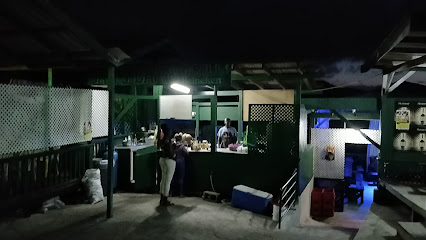
Garrot Blacks Bar & Lounge
Experience the vibrant nightlife at Garrot Blacks Bar & Lounge in English Harbour, where local flavors and lively entertainment come together.
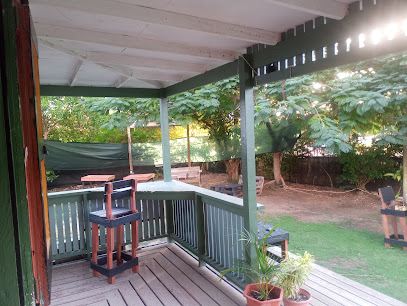
LISA BAR
Discover the vibrant atmosphere and refreshing drinks at Lisa Bar, a top spot for nightlife in St John's, Antigua.
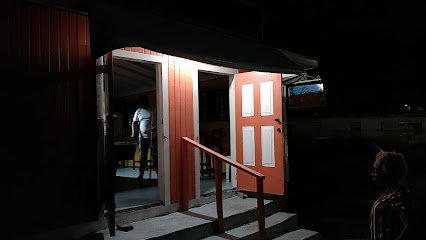
CHRISTIAN SUNSHINE BAR
Discover the lively spirit of Antigua at Christian Sunshine Bar, where great drinks and friendly faces create unforgettable nights.
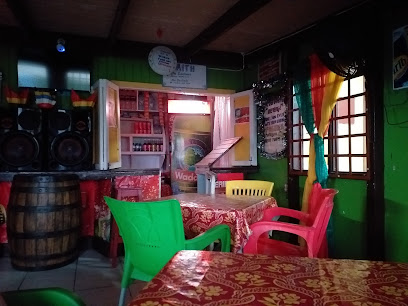
Julee's
Experience the vibrant atmosphere and delicious drinks at Julee's, the premier bar in St John's, Antigua for an unforgettable night out.
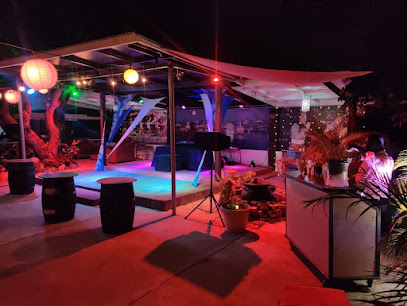
Kennedy's Classic Bar & Deli
Discover the vibrant flavors of Antigua at Kennedy's Classic Bar & Deli, where local cuisine meets a lively social atmosphere.
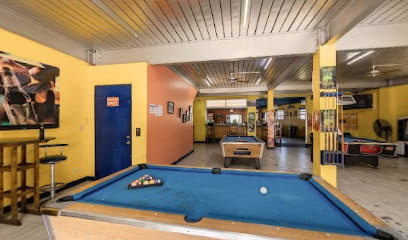
Skyy Bar Beer Garden & Lounge
Experience the vibrant nightlife at Skyy Bar Beer Garden & Lounge in St. John's, where refreshing drinks meet live music in a stunning outdoor setting.

Stables Bar
Experience the lively atmosphere of Stables Bar in Cassada Gardens, where refreshing drinks and local flavors await your visit.

EMMA'S BAR
Discover the vibrant nightlife of St. John's at Emma's Bar, where local flavors and lively ambiance unite for an unforgettable experience.

STREET LIVE BAR
Discover the vibrant nightlife at STREET LIVE BAR in St. John's, where live music and delightful cocktails create an unforgettable experience.
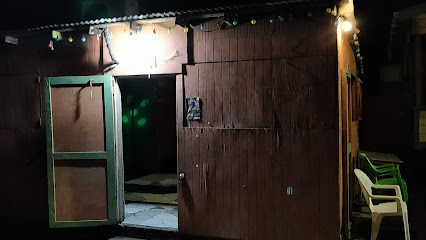
SIDEVIEW BAR & GRILL
Experience the lively environment and diverse menu at Sideview Bar & Grill, a must-visit destination in All Saints for food and drink lovers.
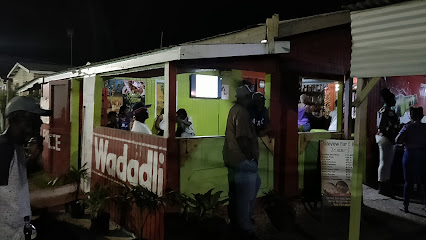
ODIZ BAR & GRILL
Odiz Bar & Grill: A lively St. John's hotspot for delicious food, refreshing drinks, and unforgettable nightlife.
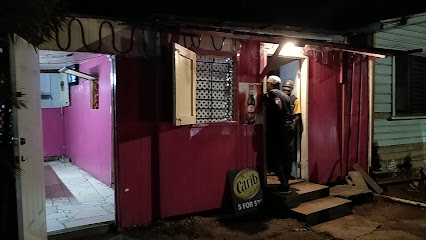
Local Phrases
-
- HelloHello
[Hello] - GoodbyeGoodbye
[Goodbye] - YesYes
[Yes] - NoNo
[No] - Please/You're welcomePlease/You're welcome
[Please/You're welcome] - Thank youThank you
[Thank you] - Excuse me/SorryExcuse me/Sorry
[Excuse me/Sorry] - How are you?How are you?
[How are you?] - Fine. And you?Fine. And you?
[Fine. And you?] - Do you speak English?Do you speak English?
[Do you speak English?] - I don't understandI don't understand
[I don't understand]
- HelloHello
-
- I'd like to see the menu, pleaseI'd like to see the menu, please
[I'd like to see the menu, please] - I don't eat meatI don't eat meat
[I don't eat meat] - Cheers!Cheers!
[Cheers!] - I would like to pay, pleaseI would like to pay, please
[I would like to pay, please]
- I'd like to see the menu, pleaseI'd like to see the menu, please
-
- Help!Help!
[Help!] - Go away!Go away!
[Go away!] - Call the Police!Call the Police!
[Call the Police!] - Call a doctor!Call a doctor!
[Call a doctor!] - I'm lostI'm lost
[I'm lost] - I'm illI'm ill
[I'm ill]
- Help!Help!
-
- I'd like to buy...I'd like to buy...
[I'd like to buy...] - I'm just lookingI'm just looking
[I'm just looking] - How much is it?How much is it?
[How much is it?] - That's too expensiveThat's too expensive
[That's too expensive] - Can you lower the price?Can you lower the price?
[Can you lower the price?]
- I'd like to buy...I'd like to buy...
-
- What time is it?What time is it?
[What time is it?] - It's one o'clockIt's one o'clock
[It's one o'clock] - Half past (10)Half past (10)
[Half past (10)] - MorningMorning
[Morning] - AfternoonAfternoon
[Afternoon] - EveningEvening
[Evening] - YesterdayYesterday
[Yesterday] - TodayToday
[Today] - TomorrowTomorrow
[Tomorrow] - 11
[1] - 22
[2] - 33
[3] - 44
[4] - 55
[5] - 66
[6] - 77
[7] - 88
[8] - 99
[9] - 1010
[10]
- What time is it?What time is it?
-
- Where's a/the...?Where's a/the...?
[Where's a/the...?] - What's the address?What's the address?
[What's the address?] - Can you show me (on the map)?Can you show me (on the map)?
[Can you show me (on the map)?] - When's the next (bus)?When's the next (bus)?
[When's the next (bus)?] - A ticket (to ....)A ticket (to ....)
[A ticket (to ....)]
- Where's a/the...?Where's a/the...?
History of All Saints
-
All Saints is a vibrant and culturally rich village located in the heart of Antigua and Barbuda. Known for its historical significance and deep-rooted traditions, it offers a unique glimpse into the island's past and present. The village is a hub for local culture and history, making it a must-visit destination for any history enthusiast.
-
All Saints, like much of Antigua and Barbuda, was heavily influenced by European colonization. The village developed during the British colonial period, with its name likely derived from the Anglican Church of All Saints. The church played a significant role in the community, serving as both a religious and social center.
-
During the 17th and 18th centuries, the sugar plantation economy dominated Antigua, and All Saints was no exception. The village was surrounded by sprawling sugar estates, which were worked by enslaved Africans. The remnants of these plantations can still be seen today, offering a haunting reminder of this dark period in history.
-
The abolition of slavery in 1834 brought significant changes to All Saints. Freed people began to establish their own communities and livelihoods. The village evolved as a center for free Black Antiguans, with its population growing and diversifying. This era laid the foundation for the rich cultural tapestry that defines All Saints today.
-
All Saints is renowned for its vibrant cultural festivals, which reflect the village's diverse heritage. One of the most notable is the All Saints Day celebration, held annually on November 1st. This event features traditional music, dance, and food, showcasing the community's enduring cultural traditions. Additionally, the village participates in Antigua and Barbuda's national Carnival, adding its unique flair to the festivities.
-
Walking through All Saints, visitors can admire a variety of architectural styles, from colonial-era buildings to more modern structures. The All Saints Anglican Church is a prominent landmark, its architecture reflecting the village's colonial past. Traditional wooden houses, some of which date back to the 19th century, provide a glimpse into the architectural evolution of the area.
-
In recent decades, All Saints has seen considerable economic development. While agriculture remains important, the village has diversified its economy, with small businesses, tourism, and artisanal crafts contributing to its growth. This economic evolution has brought new opportunities and challenges, shaping the modern identity of All Saints.
-
Education has always been a cornerstone of the All Saints community. The village is home to several schools, including the All Saints Secondary School, which plays a crucial role in the education of local youth. These institutions not only provide academic learning but also instill a sense of community pride and cultural awareness.
-
All Saints is surrounded by lush landscapes and agricultural land. The village’s environment supports a variety of flora and fauna, contributing to its ecological importance. Sustainable farming practices and community efforts to preserve the natural surroundings highlight the village’s commitment to environmental stewardship.
-
The social fabric of All Saints is woven with strong community ties and traditions. Local events, markets, and church gatherings are central to village life. The community's resilience and solidarity are evident in its response to challenges, whether they be natural disasters or economic hardships. These social dynamics have helped preserve the unique identity of All Saints.
All Saints Essentials
-
All Saints is located in the central part of Antigua. The nearest international gateway is V.C. Bird International Airport (ANU), which is approximately 30 minutes by car from All Saints. From the airport, you can take a taxi or rent a car to reach All Saints. There are also local buses that connect the airport to various parts of the island, including All Saints.
-
All Saints is a small town, and many attractions are accessible on foot. For longer distances, taxis are readily available and are a convenient way to travel. Public buses operate on specific routes and are an affordable option for getting around the island. Car rentals are also available and provide flexibility for exploring the area at your own pace.
-
The official currency in Antigua and Barbuda is the Eastern Caribbean Dollar (XCD). US Dollars are widely accepted, but it is advisable to carry some local currency for smaller transactions. Credit cards are accepted in most hotels, restaurants, and shops. ATMs are available in All Saints for cash withdrawals.
-
All Saints is generally a safe destination for tourists. However, it is important to exercise standard safety precautions. Avoid walking alone at night in unfamiliar areas and be cautious of your belongings in crowded places. While All Saints is relatively safe, higher crime rates targeting tourists have been reported in certain areas of St. John's, so stay vigilant when visiting the capital.
-
In case of an emergency, dial 911 for immediate assistance. All Saints has local police and medical facilities available. It is advisable to have travel insurance that covers medical emergencies. For minor health issues, there are pharmacies in town where you can purchase over-the-counter medications.
-
Fashion: Do dress modestly, especially when visiting religious sites. Avoid overly revealing clothing. Religion: Do respect local customs and traditions. Always dress appropriately when visiting churches. Public Transport: Do be respectful and give up your seat to elderly passengers. Don't eat or drink on public transport. Greetings: Do greet people with a friendly 'Good morning' or 'Good afternoon.' Eating & Drinking: Do try local dishes and accept food offerings graciously. Don't refuse hospitality, as it is considered impolite.
-
To experience All Saints like a local, visit the local markets where you can buy fresh produce and traditional Antiguan goods. Engage with locals, who are often friendly and willing to share stories about the area. Don't miss the nearby historic sites such as the Betty's Hope sugar plantation and the picturesque Falmouth Harbour. For a unique experience, attend a local festival or event to immerse yourself in the vibrant culture and traditions.
Trending Landmark in All Saints
-
Heritage Quay Complex
-
Nelson's Dockyard
-
Stingray City Antigua
-
Redcliffe Quay
-
Shirley Heights Lookout
-
Devil's Bridge National Park
-
Galleon Beach
-
Pigeon Point Beach
-
VC Bird Monument
-
Dickenson Bay Beach
-
Museum of Antigua and Barbuda
-
Dow's Hill Interpretation Centre
-
Fort James
-
Betty's Hope Historic Sugar Plantation
-
Saint John's Cathedral
Nearby Cities to All Saints
-
Things To Do in Liberta
-
Things To Do in Falmouth
-
Things To Do in English Harbour
-
Things To Do in Bolands
-
Things To Do in St. John's
-
Things To Do in Freetown
-
Things To Do in Jolly Harbour
-
Things To Do in Codrington
-
Things To Do in Dickenson Bay
-
Things To Do in Woodlands
-
Things To Do in Gingerland
-
Things To Do in Newcastle
-
Things To Do in Cotton Ground
-
Things To Do in Charlestown
-
Things To Do in Basseterre











